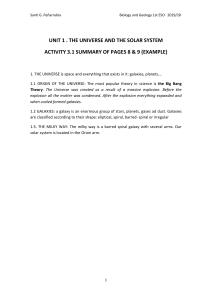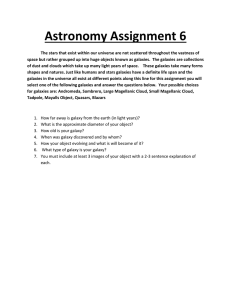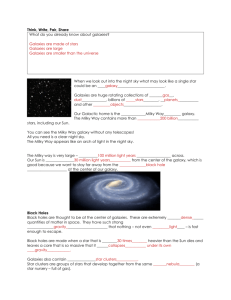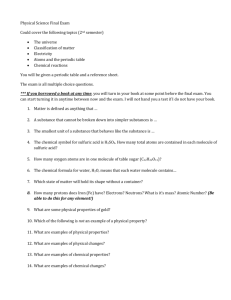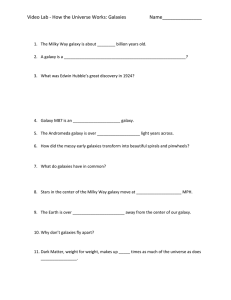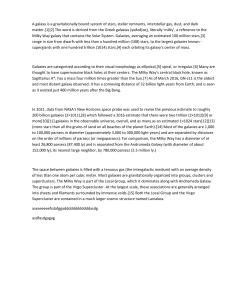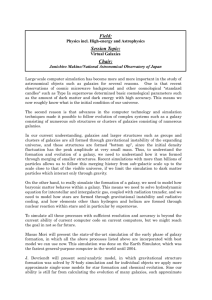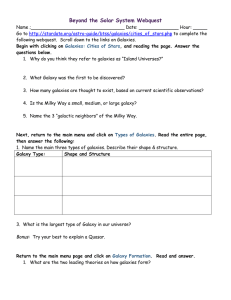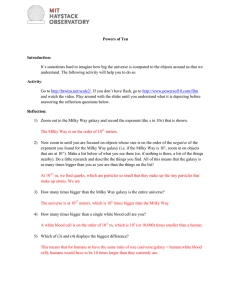Stellar Evolution
advertisement
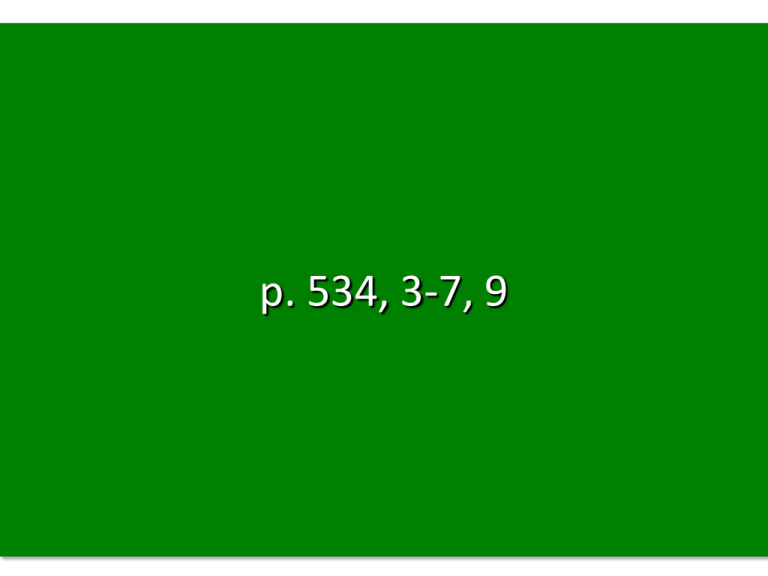
p. 534, 3-7, 9 p. 534, 3-7, 9 3. 3. Compare the size of the Milky Way galaxy with the size of a cluster of galaxies. How many times bigger is a typical cluster? A typical cluster is about 100 times the size of the Milky Way galaxy. 4. List the three main types of galaxies. 4. The three main types of galaxies are spiral, elliptical, and irregular. p. 534, 3-7, 9 5. 6. Draw sketches of the Milk Way galaxy viewed from the side and from overhead. Label the following on each: central bulge, disc, solar system. Explain why the Milky Way appears as a narrow band of light in the night sky. 6. The Milky Way is a narrow band because we are inside the galaxy and the galaxy has a flat shape. p. 534, 3-7, 9 7. Describe the evidence that the universe is expanding. 7. Evidence that the universe is expanding is provided by the fact that light from other galaxies is shifted toward the red end of the spectrum. That means all galaxies are moving away from each other. 9. How would other galaxies appear to move relative to the Earth if the universe were shrinking? 9. If the universe were shrinking, every galaxy would appear to be moving toward Earth. Blue shift!
